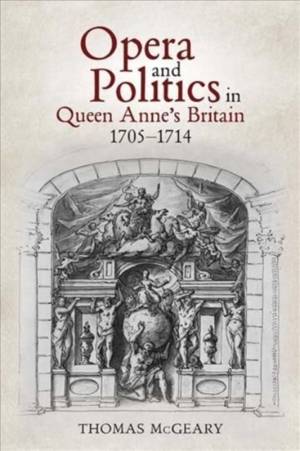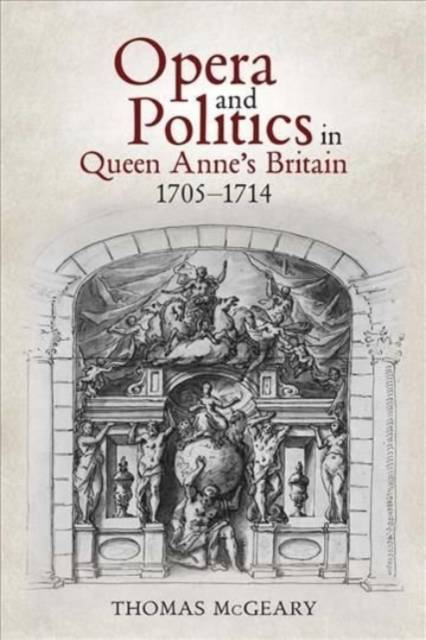
Je cadeautjes zeker op tijd in huis hebben voor de feestdagen? Kom langs in onze winkels en vind het perfecte geschenk!
- Afhalen na 1 uur in een winkel met voorraad
- Gratis thuislevering in België vanaf € 30
- Ruim aanbod met 7 miljoen producten
Je cadeautjes zeker op tijd in huis hebben voor de feestdagen? Kom langs in onze winkels en vind het perfecte geschenk!
- Afhalen na 1 uur in een winkel met voorraad
- Gratis thuislevering in België vanaf € 30
- Ruim aanbod met 7 miljoen producten
Zoeken
Omschrijving
Explores the political meanings that Italian opera - its composers, agents and institutions - had for audiences in eighteenth-century Britain. The reign of Queen Anne (1702-1714) was pivotal for both politics and opera in Britain. In this study, Thomas McGeary brings together a wide range of sources to show how the worlds of politics and opera were entwined. The associations that Italian singing and singers acquired by the 1690s were used in partisan Whig-Tory writings. Rather than a foreign invasion, McGeary shows how the introduction of Italian-style opera was a native product that grew out of plans for a new theatre in the Haymarket. A crucial event for opera was Handel's arrival in London in 1710. While the criticism of opera by Whig writers such as Richard Steele and Joseph Addison is well known, McGeary uncovers how the early promotion and sponsorship of opera was, in fact, largely a Whig enterprise and cultural program. Indeed, major political figures (mostly Whigs) participated in the support and patronage of opera. Opera and Politics in Queen Anne's Britain will be required reading for opera scholars and cultural and political historians of eighteenth-century Britain, as well those interested in the vibrant literature culture of the period.
Specificaties
Betrokkenen
- Auteur(s):
- Uitgeverij:
Inhoud
- Aantal bladzijden:
- 444
- Taal:
- Engels
- Reeks:
- Reeksnummer:
- nr. 31
Eigenschappen
- Productcode (EAN):
- 9781783277155
- Verschijningsdatum:
- 26/07/2022
- Uitvoering:
- Hardcover
- Formaat:
- Genaaid
- Afmetingen:
- 156 mm x 234 mm
- Gewicht:
- 798 g

Alleen bij Standaard Boekhandel
+ 515 punten op je klantenkaart van Standaard Boekhandel
Beoordelingen
We publiceren alleen reviews die voldoen aan de voorwaarden voor reviews. Bekijk onze voorwaarden voor reviews.









